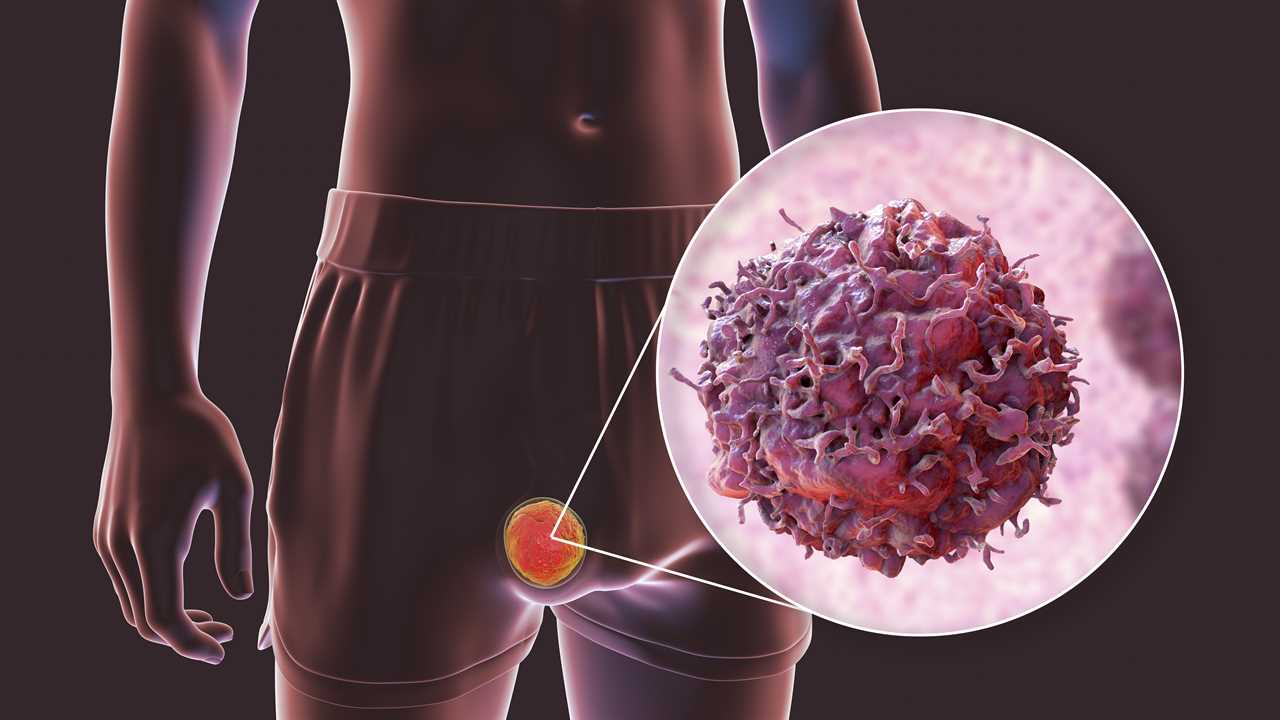MILLIONS of men with autism or ADHD are more likely to get testicular cancer, a study shows.
Neurodevelopmental disorders — which also include cerebral palsy and learning difficulties — were linked with a higher risk of the deadly disease.

Testicular cancer. Computer illustration showing a malignant tumour in the testis and a close-up view of a testicular cancer cell.
Swedish scientists believe changes in the womb that cause the disorders may also be behind the increased risk of tumours.
They said patients and their families should be aware of the dangers and make sure they check their testicles.
Dr Anna Jansson, of Uppsala University, said: “We do not know why we are seeing a link between neurodevelopmental disorders and the risk of testicular cancer.
“But we believe that early life events have an impact, perhaps even as early as the foetal stage.”
Dr Ingrid Glimelius said: “It is important for the healthcare system, the individuals and their families to be aware they may be affected by another illness, and to ensure they seek treatment if they feel a lump.
“This disease can be cured in most people today.”
Around 700,000 Brits have autism, while about 2.6million are thought to have ADHD.
Testicular cancer is diagnosed around 2,300 times every year in the UK and is the 17th most common cancer in the country.
It tends to affect younger men but experts do not know exactly what causes it.
Known risk factors include a family history of the disease, or previously having it yourself.
Hypospadias — a birth defect where the opening of the urethra is not at the tip of the penis — and undescended testicles are also risks.
These are both more common in people with neurodegenerative conditions.
The study, published in the British Journal of Cancer, looked at whether testicular cancer and the conditions could be linked.
Researchers tracked medical records of 6,166 testicular cancer patients and compared them to 61,660 age-matched men who didn’t have the disease.
Men with the disorders were just under one per cent more likely to suffer testicular cancer.
Researchers said the results could help inform our understanding of the disease and how it affects all men.
Dr Glimelius said: “As testicular cancer can be surgically removed, thus curing the disease, it is important to seek care in time if you feel a lump in your testicle.”






